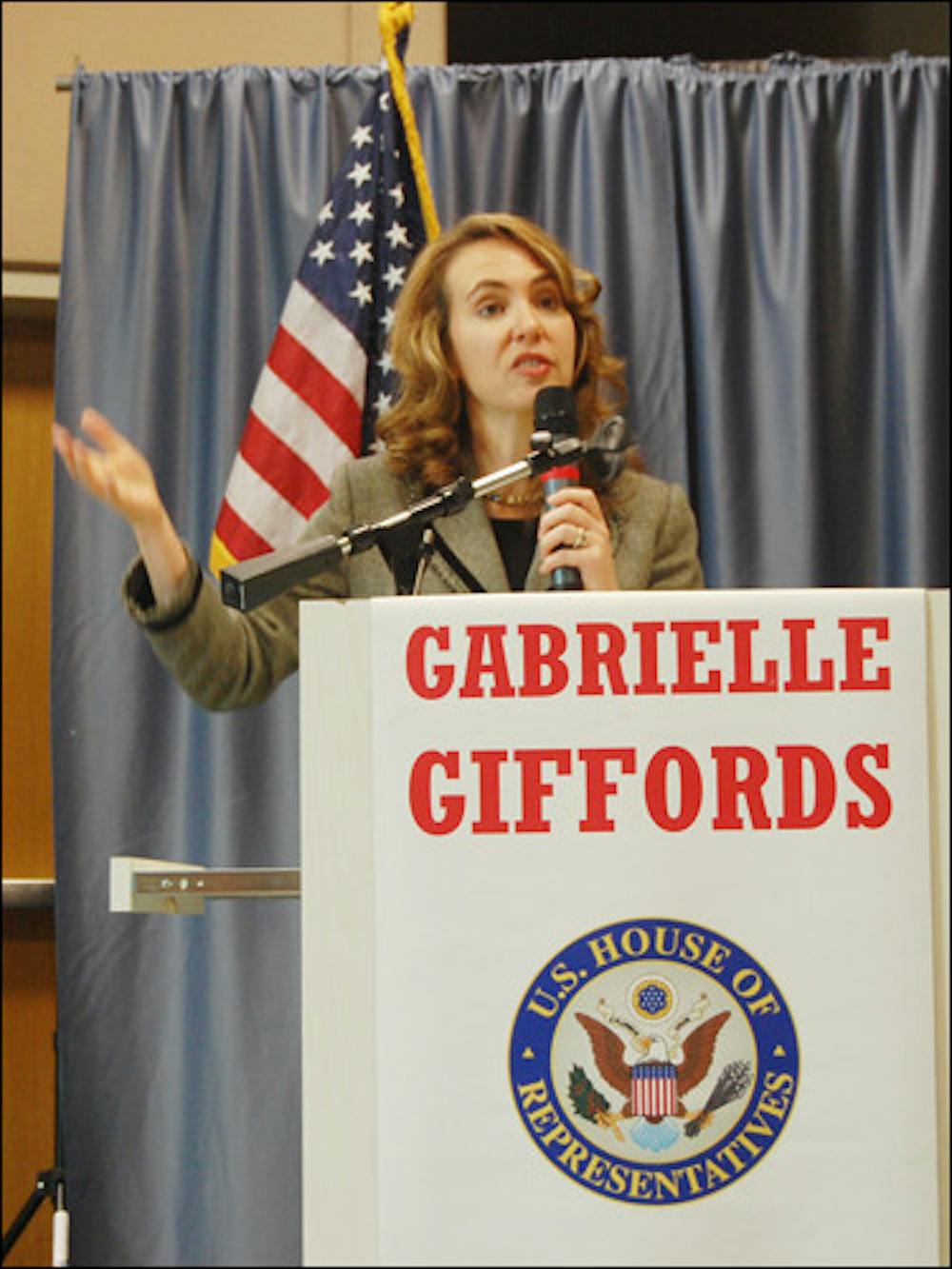Funding for solar and renewable energy will lead Arizona to a bright future, despite current economic woes, U.S. Rep. Gabrielle Giffords [D-8] said to ASU students, staff and community members in the Memorial Union on Tuesday afternoon.
Giffords addressed how the effects of the $789 billion stimulus package signed on Tuesday by President Barack Obama will provide Arizona with fundamental funding for renewable energy.
“We couldn’t afford not to act and pass the [stimulus package],” she said. “For us not to act would be irresponsible. What I like about this act is that it focuses on areas we have been neglecting.”
With more than 300 average days of sunshine a year, Arizona is at the forefront of the future development of solar energy, a source of energy Gifford’s feels has been neglected for far too long.
“Clearly, when it comes to solar, we are ideally in the right spot for solar energy,” Giffords said.
The stimulus package allocates $326 billion in tax provisions over the next 10 years to Arizona, with $19.9 billion dedicated to energy alone, she said.
The package provides $2.5 billion in competitive grant funding for energy efficiency and renewable energy research development. $4.5 billion for grants to develop and deploy smart-grid technologies will be given to Arizona, Gifford said.
In addition to increasing energy funding, the stimulus plan also provides funding for research and science and math programs with more than $100 billion going to education statewide, she said.
“In terms of the heart and soul of our country, I think this bill does a lot,” she said.
Giffords said improving Arizona school children’s math scores in particular should be the main focus of change for the future of the state. She said 30 percent of fourth-graders and 39 percent of eighth-graders in the state are below math standards.
Rochelle Wells, a governing board member of the Tempe Elementary School District, attended the speech and said she thought the extra funding would improve elementary math scores.
“The accountability piece of the No Child Left Behind Act makes it difficult to find qualified teachers in science and math in elementary [schools] because teachers get paid more in high school,” she said.
Rogier Windhorst, regents’ professor of astronomy at ASU, said he agreed with Giffords about the importance of the stimulus package for Arizona.
“This is a critical event for the state,” he said. “We have two new Congress folks — fresh breaths that care deeply about the education, economic development, science, new technology and anything our state is good at.”
Joseph Monfeli, a conservation biology junior, said public policy should reflect practical environmental needs.
“If we don’t get things the way we need to for the future and adjust our economy to the long term, there will be no future,” he said.
Reach the reporter at krista.norsworthy@asu.edu.




